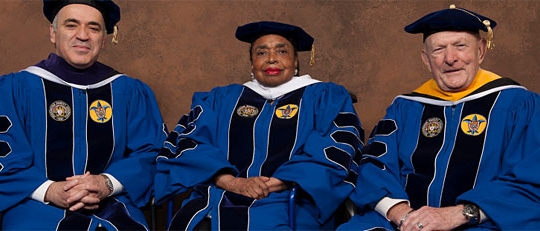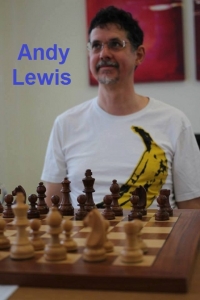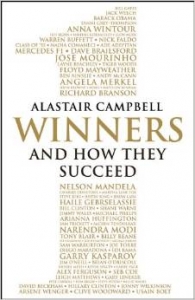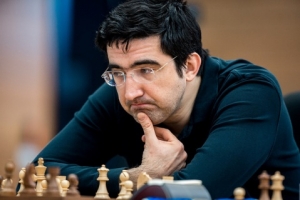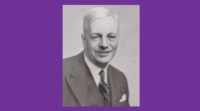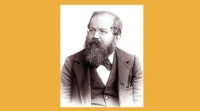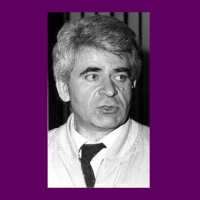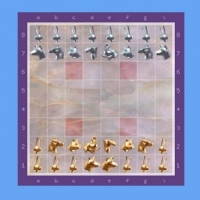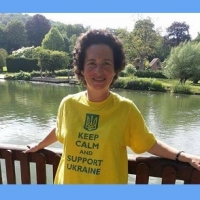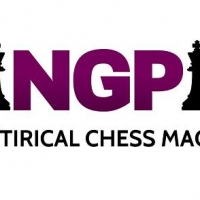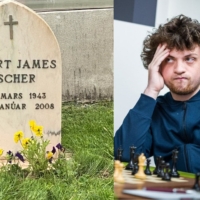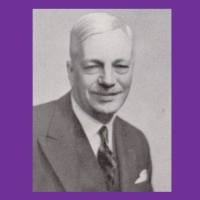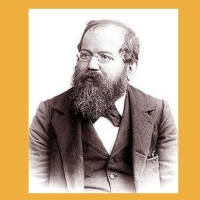Why Life Does Not Imitate Chess
Garry Kasparov is an archetypal winner: one that every ambitious person should learn from. So says Alastair Campbell. And he should know: he’s written a book on this subject!i
‘Running through everything Kasparov says is the idea that winners have to be good at strategy and at tactics … The good strategist who lacks the ability to exploit opportunity will not win. The good tactician who can seize on opportunities but lacks the ability to make progress when no opportunities present themselves will not win.’ (p.20)
But ever wondered how a genius strategist and tactician understands the activity of decision making? How come he gets this consistently right, when for us also-rans it’s always a hit-and-miss lottery?
Part 2: Good Decisions
Here’s how Kasparov elucidates the three basic dimensions of assessment: both for chess and any other field you care to mention.b
‘The fundamental building block of evaluation is material. Assets, stock, cash, goods, pieces and pawns, it’s all material …
Anyone who has ever worked for an hourly wage knows time has value. Material – money – is exchanged for labour by hours and minutes … A military commander is used to thinking of time in the same way as a chess-player … In combat, a light, fast-moving force can triumph by crashing through the opponent’s weak-flank …
Much more goes into the evaluation of a position than counting the pieces and their moves. The pieces’ value fluctuates depending on the position and that can change at every turn. The same is true about the value of a move … Material is the fundamental reference point; time is movement and action. To be understood and utilized they must be governed by a third element: quality.’ (pp.87-94 emphasis added)
At first sight, Kasparov appears to be onto something here. Kasparov’s corporate clientele know that every operational process has the same three fundamental parameters.
Consider, for example, a TV manufacturer. Let’s suppose that it wants to increase the quality of its output (say, producing longer-lasting and higher-resolution TVs). Typically that could only be done by either inputting superior material (improved production facilities, better trained workers or more expensive components) or increasing the time allowed for the production cycle (to enable, for example, more testing and/or quality checks).
But there’s a difference. In chess, the elements of Material, Time and Quality trade off with each other, because they are each subordinated to the ultimate goal of giving checkmate. Is the Poisoned Pawn Variation sound? Using Kasparov’s three elements, this question can be rephrased as: does the Time which White gains outweigh (i.e. is it more liable to deliver checkmate than) the long-term Material disadvantage of the pawn minus combined with the Positional disadvantage of the wrecked queenside pawn structure? Tricky question. Still, perhaps in a few decades’ times, given projected advances in chess software, we might hope to learn the answer.
But how about this question: is it worthwhile for a TV manufacturer to expend extra capital and/or production time to create higher quality TV sets? There is clearly never going to be convergence on that. It just depends on so many other factors. Let’s suppose that the base date on the costs and time required to migrate to a higher quality manufacturing process are settled. Even so, varying the focus on (say) improved customer satisfaction, environmental sustainability, greater profitability, or increased employment rates, could all lead to different (but justifiable) conclusions to the above question.
When Kasparov is describing decision making, he clearly has only ‘means-ends’ reasoning in mind. In chess, both the objective and what you are allowed to do to achieve it are unambiguous: the skill comes only in working out which alternative is the best option for realizing that objective. Well what else is there?
Another aspect of decision making consists of establishing whether your objectives are actually worthwhile in the first place. ‘Worthwhile’ does not just mean ‘leading to the realization of further objectives’: for anything to be worthwhile at all, some goals must be worth pursuing in their own right. A further aspect consists of evaluating whether a possible means of pursuing an objective is acceptable or not. ‘Acceptable’ does not just mean ‘allowed by prevailing laws, rules or conventions’, but whether it is (say) right, fair or just for rational, sentient creatures to treat each other (or other sentient creatures) in this way. I’ll call this fundamental evaluation of both objectives and their means of realization ‘moral reasoning’.
Kasparov’s Greatest Blunder
Does Kasparov get this distinction? This is how he describes the worst mistake of his chess career:b
‘Ever since … FIDE had interrupted my first world championship I had feuded with their leadership without pause. In the run-up to my 1993 … match … Nigel Short … called me with a tempting offer, to play the match outside of FIDE and launch our own Professional Chess Association. Here at last was a chance to break away from the corrupt bureaucracy and introduce chess into the world of modern sport.
Short was the first Western Challenger since … 1972. With his involvement I thought we could generate tremendous interest and rally the support of the world’s Grandmasters to our cause against FIDE. Just a few years earlier the professional players union I had created had foundered when the western GMs formed an opposition bloc. Suddenly here was Short, the last president of the Grandmasters Association, offering to join forces. Now I thought we could really unite the chess world. This turned out to be a terrible blunder, the worst of my career. After we made the announcement it quickly became apparent … that Short had no such support … I was so eager to achieve my goal that I was oblivious to how unlikely the plan was to succeed.’ (pp.114-115)
This passage reads as if Kasparov, egged on by Short, had simply miscalculated. He had reckoned that Short would carry with him the majority of Western GMs, leading to the formation of an alternative body governing world chess. But, if so, why didn’t Kasparov trouble himself to verify that assumption? And why didn’t the world’s GMs rally as one to the Garry and Nigel flag?
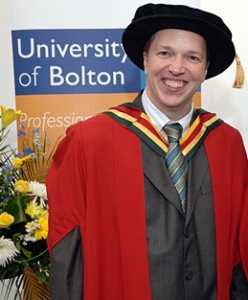 Short: the perfect Mephistopheles to Kasparov’s Faust (photo: ChessBase)
Short: the perfect Mephistopheles to Kasparov’s Faust (photo: ChessBase)
FIDE, like its counterparts in other sports, exists to fulfil a number of functions. The primary, and most well-known, role is to organize and officiate the World Championship, and that means not just the highly publicized World Championship Final, but the entire series of Zonals, Interzonals and Candidates’ tournaments culminating in the Final. FIDE had been running the World Championship since 1948 and appeared to have been making a decent job of it.
Perhaps the golden era was under the presidencies of Max Euwe (1970–78) and Friðrik Ólafsson (1978–82). During that period FIDE was required to make a number of tough calls. These include rejecting Fischer’s demand in 1975 that Karpov would require a 10–8 victory margin to take the World Championship, which ultimately led to Fischer forfeiting the title. It also regularly required FIDE to stand up to the Soviet Union’s bully-boy tactics: for example, the Soviet Union’s demand for Sosonko to be ejected from professional chess after his defection in 1972 and for Korchnoi to be debarred from challenging Karpov after his defection in 1976.6 To its credit, both were rejected by FIDE.
But FIDE does more than that. For example, codifying the rules of chess and tournament rules, appointing officials and arbiters, overseeing the awarding of titles and the rating system. And, lest we forget, it is also a democratic institution, although the ‘one nation one vote’ system tends to skew FIDE voting in favour of the needs of the smaller nations. (But that’s another story.)
What a unitary authority such as FIDE offers to the World Champion of a global sport like chess is, in a word, legitimacy. Someone becomes World Champion not simply by becoming the highest rated player in the world or even by beating the reigning World Champion. That would be too easy! One attains the crown by emerging victorious through a tightly defined and transparent selection cycle and finally defeating the reigning World Champion in a match format designated suitable for such an august event. Take away the selection cycle and its rigorous enforcer: take away the kudos of the World Champion!
Kasparov was a direct beneficiary of the streamlined FIDE World Championship cycle. That, in addition to his outstanding talent, is how he got a shot at the world title as early as 21. But FIDE was just a ladder to be kicked away after Kasparov had climbed to the top.
What else should one expect from a winner? Richard II has been taken prisoner by Bolingbroke (who later became Henry IV) and has now relinquished the crown to the usurper. But, to compound the humiliation, Bolingbroke’s chief henchman, the Earl of Northumberland, has further demanded that Richard signs a public confession to some fabricated charges. Expect nothing from the victor, he mocks:
Richard II [5.1] 55-65
Kasparov’s Monster
And what did the Kasparov–Short creation, the Professional Chess Association (PCA), have on offer to replace FIDE? The PCA made no attempt whatsoever to replace the less glamorous functions performed by FIDE. (An odd position: surely the rules of the game, appointment of arbiters and the award of titles are too important to be left in the hands of a ‘corrupt bureaucracy’?) To be fair, the PCA made a decent fist of its 1993−95 Candidates’ cycle, organizing an 11-round Swiss tournament with 54 competitors (won jointly by Adams and Anand) the top seven of whom joined Short in a three-round knockout (Anand defeating Kamsky in the final) to determine Kasparov’s challenger in 1996.7
However, in 1996 Intel, the main sponsor of the PCA, pulled out: clearly angered by Kasparov’s decision to play a match against Deep Blue, the creation of its major commercial rival IBM.8 With no honey left in the hive, none of the plausible Candidates were interested in a further PCA World Championship cycle. So Kasparov was forced to resort to appointing a rival contender. And Kramnik was not even his second choice. Anand excused himself on the grounds that he was contractually committed to the FIDE cycle, while in the one Candidates’ match which actually took place (1998) Kramnik lost to Shirov 3.5–5.5. Yes, over six decades after Capablanca and then Alekhine had demanded ludicrous sums of money to put their world titles up for stake, we are back to the World Champion treating his title as a personal fiefdom. Except in this case, to continue the competition, it’s the World Champion who is hard pressed to raise the cash!
Kramnik: not even second choice for the 2000 PCA World Championship Final (photo: Candidates website)
Kasparov’s rift with FIDE was more than just a blunder: it was a monumental loss of vision, an utterly irresponsible action to destabilize a useful and legitimate organization. Far from having a concrete conception of how to replace the core functions provided by FIDE, Kasparov failed even to grasp what these are, lacking even an understanding of FIDE’s role in legitimizing his own title of World Champion.
No wonder Kasparov’s defence of his title against Kramnik in 2000 was so insipid: he was probably just happy to find a sucker on which to offload the rotting corpse of the PCA!
Kasparov and Corporate Ethics
However, Kasparov’s book is clearly directed at the corporate market: is it really fair to criticize it for overlooking moral considerations? Why not ask the shareholders of the Volkswagen Group?
Full details of the recent tale of corporate maleficence are still emerging, but what appears to have happened is this. Back in the 2000s, some genius in the VW Design Engineering Department, faced with the twin challenge of improving fuel economy while minimizing noxious emissions, had a brain wave. Why not design an engine smart enough to know when it was getting tested? That way it could appear lean and green when in test mode (conveniently in Europe most ‘government’ tests for emissions are routinely carried out by the car manufacturers themselves) and yet, on the road, free to pump out as much nasty NOx as necessary to rack up the mpg.
Wicked!
The moral critique of VW is easy enough. Fossil fuel based cars are never going to be the Greens’ vehicle of choice. However, accepting the political reality that the car is (for most of us) the preferred method of personal transport, vehicle manufacturers have a vital role in environmental conservation. And how has VW responded to this mission? Not by designing minimally pollutant engines, but by creating an entire engine category that cloaks true nitrogen oxide emissions! The EA189 1.6-2.0 diesel engines containing the test-defeat software are not just confined to a single model/build year, but to almost 11 million cars manufactured between 2009 and 2015. Multiple brands – Audi, SEAT, Skoda as well as VW – owned by the Volkswagen Group are affected.9 Both the objective (circumventing the need to deliver significant reduction in fuel emissions) and the means (widespread, systematic deception of consumers, trade press and regulators) are utterly unworthy of one of the most successful and respected global companies.
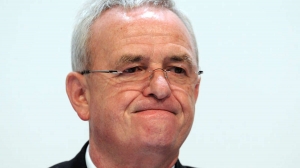 Martin Winterkorn, ex-CEO Volkswagen Group: a very, very bad day at the office
Martin Winterkorn, ex-CEO Volkswagen Group: a very, very bad day at the office
Within days of the scandal, the VW Group had already written off €6.5 billion. However, the fine from US regulators alone is likely to exceed $18 billion.10 Even now, the true cost of this catastrophe has yet to bottom out.
How the shareholders of VW must be kicking themselves for not insisting that corporate ethics were top of the company training programme! That would have proved far more cost-effective than any number of lectures from ‘Dr’ Kasparov.
What Makes Chess Players so Different?
Kasparov’s description of the decision-making process and how it can be improved is wrong, not because of what he includes but what he leaves out.
Deliberation in chess is a fairly extreme case of means-ends reasoning. To think as a chess player means to immerse oneself completely in the objective of winning (or at any rate not losing) the game in hand, taking the rules as the absolute and only side-constraints on one’s actions: everything in accord with the rules of chess is equally allowable, anything not permitted by the rules of chess is absolutely forbidden. But has it never struck you that this is a slightly odd, almost child-like, mind-set? How can this be a general paradigm for good decision making?
In chess, decision making is short-term and focused: every value is subordinated to the goal of checkmate.For any important decision in life, you need to look at broad range of considerations, both in determining your objectives and what is acceptable to achieve them.Unless, like Volkswagen or Kasparov, you want to totally screw up!
Want to know what the wider gaming community finds so perplexing about their chess-playing brethren? It’s the fact that chess players invest so much time and effort into playing and studying a game governed by a single set of conventions, yet almost zero time and effort into looking at other possible sets of conventions. Why can’t the rules of chess be changed to make it an even more interesting game? Why aren’t chess players even remotely interested in trying to find out?
The distinguished computer scientist Omar Syed is flabbergasted. In 2003, he invented Arimaa, an exceptionally promising chess-variant, which has so far failed to entice even a single titled chess player. As he writes:
‘Would Arimaa be able to attract the kind of talent found in games like Chess and Go …? … I have come to realize now that it might be easier to get a devoted strategy games player to change religions than to change the game they play.’ j
Ever wondered why most chess players tend to achieve their peak rating at a relatively early stage in their career? A common bench mark is the age at which a World Champion first attains the world title. A few decades back, we used to think that the peak would be the early thirties, with Petrosian, Spassky and Fischer taking the world crown at ages 34 (1963), 32 (1969) and 29 (1972) respectively. But Karpov, Kasparov and now Carlsen have led us to think the peak age must be closer to the early twenties, taking the title for the first time at ages 24 (1975), 22 (1985) and 22 (2013). At this rate, we have not long to wait before we witness the first teenage World Champion!
But look at other cerebral professions. Academics, authors, lawyers, doctors, musicians, journalists are frequently found doing some of their best work at 50 or even 60. Why are chess players so different? What is it that the youngsters have got that we oldies, notwithstanding our years of hard-won battle experience, now lack?
In order to play chess at one’s peak, what one needs, above and beyond the obvious cognitive facilities, is a fanatical monomania: the ability to block out all other considerations and focus solely on winning the game in hand. This ability is not a type of perspective: it’s a complete lack of perspective. It’s the capacity to focus on an objectively unimportant outcome from an arbitrary set of rules as if it were the most important thing in the world. This is a gift of childhood, which most adults tend to lose. Like it or not, the normal course of events, even for the most dedicated devotee, is to ‘grow out of chess’. Not because chess becomes less interesting, but because other values become more important: relationships, careers, families, financial security, creating a just society, saving the planet. Any interest in that sort of stuff doesn’t help the chess player a bit.
No, you don’t actually need to be an amoral, narcissistic egomaniac in order to become a great chess player – but it never hurt Kasparov!
Next Instalment
Kasparov’s ambitions go way beyond chess and even business strategy. But has he got the right stuff to become a major player on the global political stage?
Ever wondered what Garry actually believes in, what life would be like if he ruled the world?
And what should dedicated Kasparov fans make of this startling new development in his career?
Read on: We Need to Talk about Garry, Part 3: The Visionary
We Need to Talk about Garry, Part 1: A New Beginning
Acknowledgement and Disclaimer
This article was cobbled together from unverifiable internet sources, combined with some books and mags found in the author’s storage unit, which he’d never bothered to read previously. Kingpin’s editor contributed some snippets on Kasparov which the author had forgotten to look up.
About the Author
Andy Lewis is an FM and competed in the 2014 and 2015 British Championships. In a former life he was awarded a PhD in Philosophy, even getting an article published in the distinguished academic journal The Philosophical Quarterly. So some of this article may actually be true.
© Andy Lewis 2015

